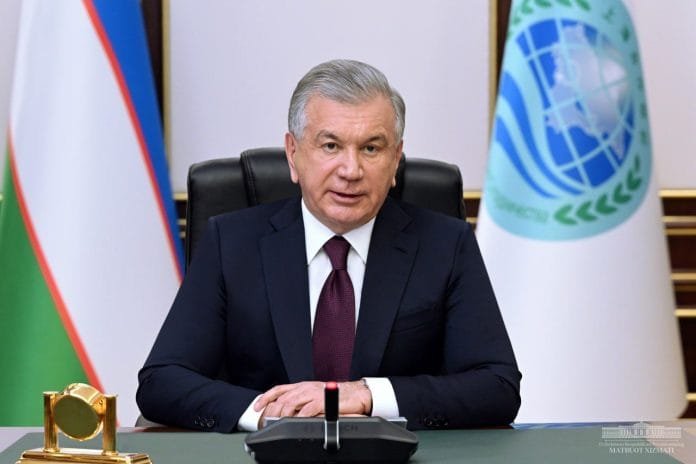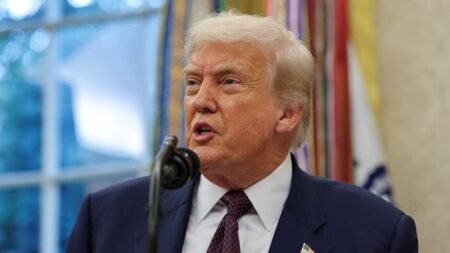Shavkat Mirziyoyev has been a central figure in Uzbekistan’s political landscape since becoming president in 2016. Born on July 24, 1957, in the Jizzakh Region of Uzbekistan, then part of the Soviet Union, Mirziyoyev has shaped the country’s recent history by steering it through significant economic and political changes. Before assuming the presidency, he served as the Prime Minister of Uzbekistan from 2003 to 2016. This experience positioned him to take over the nation’s highest office after the death of Islam Karimov, Uzbekistan’s first post-Soviet leader. Mirziyoyev’s leadership represents a notable shift toward reform and modernization in a country long marked by authoritarian rule.
Educated at the Tashkent Institute of Irrigation and Melioration, Mirziyoyev earned a degree in engineering before furthering his studies in economics and public administration. His early career was rooted in agricultural administration and regional management, allowing him to gain practical experience in governance that would later serve him in national leadership. As prime minister, Mirziyoyev was responsible for managing many of Uzbekistan’s economic policies, which helped build his reputation as a pragmatic and capable administrator.
Since taking office as president, Shavkat Mirziyoyev has prioritized a range of reforms designed to open Uzbekistan’s economy and society. He has introduced policies aimed at reducing state control over key sectors while encouraging foreign investment and private enterprise. These economic reforms have targeted agriculture, energy, and manufacturing, sectors vital to Uzbekistan’s growth and stability. The government has also worked to simplify regulations and create a more investor-friendly climate. These efforts seek to diversify the economy and reduce Uzbekistan’s dependence on traditional industries.
Another major focus of Mirziyoyev’s presidency is improving Uzbekistan’s international relations. Under his guidance, the country has taken significant steps to mend strained ties with neighboring Central Asian states, such as Kazakhstan, Kyrgyzstan, Turkmenistan, and Tajikistan. These efforts have included resolving long-standing border disputes and enhancing regional cooperation in trade, security, and infrastructure development. This diplomatic opening marks a new era of collaboration in Central Asia, one that contrasts with the more isolationist policies of previous decades.
On the domestic front, Shavkat Mirziyoyev has pushed for reforms aimed at improving governance and combating corruption. The judicial system has seen changes intended to increase transparency and fairness, and there have been moves to enhance human rights protections, although observers note that progress in these areas remains a work in progress. Mirziyoyev’s approach has been described as pragmatic, focusing on gradual changes that can foster long-term stability rather than rapid upheaval.
Tourism is another sector receiving attention from the Mirziyoyev administration. Uzbekistan’s rich cultural heritage and historic Silk Road sites offer significant potential for attracting international visitors. The government has launched initiatives to promote these assets globally, supporting infrastructure improvements and marketing campaigns designed to position Uzbekistan as a top destination in Central Asia.
Throughout his presidency, Shavkat Mirziyoyev has engaged actively on the international stage. He has made numerous state visits to key partners, including Russia, China, South Korea, and other nations. These visits underscore his goal of expanding Uzbekistan’s diplomatic and economic ties. Mirziyoyev’s administration is also active in regional organizations such as the Shanghai Cooperation Organisation and the Commonwealth of Independent States, reflecting a commitment to multilateral cooperation.
Mirziyoyev’s leadership style is often seen as a departure from the rigid and centralized control exercised by his predecessor. While maintaining firm control over the political system, he has emphasized modernization and openness. His balanced approach aims to foster economic growth and social development while preserving national stability. Public perception of Mirziyoyev is generally positive within Uzbekistan, where many welcome his reform efforts and the promise of a more open society.
Overall, Shavkat Mirziyoyev’s presidency marks a period of significant change for Uzbekistan. By pursuing economic liberalization, improving international relations, and fostering gradual domestic reforms, he is positioning the country for a new chapter of growth and engagement with the wider world.







